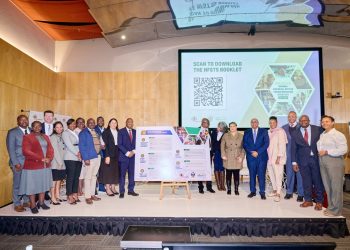
With just around seven and a half years to go for the world to achieve the ambitious gender equality targets of Sustainable Development Goal (SDG) 5, the average woman only has three-quarters of the rights that men enjoy.
These are findings from a recently published World Bank 2022 report which measures the Women, Business and Law index and looks at gender equality from different vantage points including mobility, workplace, pay, marriage, parenthood, entrepreneurship, assets and pensions.
This image becomes even more audacious when one takes a closer look at the facts: nearly 2.4 billion of working-age women worldwide do not have access to equal (emphasis on equal) economic opportunities. Sub-Saharan Africa in particular scored 71.5 out of 100 on the index, higher than the MENA region (53 out of 100), but still lower than the EU and Central Asia (84.1 out of 100).
It goes without saying that the COVID-19 pandemic has reversed the slow progress made towards achieving gender equality. As extreme as the above statistics may sound, the solutions are easily manifestable.
As nations open up to recover economic activities, it cannot be business as usual. Policy reforms pertaining to trade and investments need to be expedited and should more specifically be refined to include a gender lense rather than being gender neutral. With that said, more time needs to be spent on understanding how policies impact the social fabric of economies and the implications they will have on addressing deeply rooted gender norms.Â
One way to apply a gender lense within policy reform is to attract multinationals with roots strongly embedded in gender diversity and equality. Policy makers certainly have a role to play in creating a conducive environment that incorporates gendered dimensions, but domestic and international businesses also have a critical role to play.
 The value of attracting multinational companies to a certain economy not only resides in the foreign capital they bring, but also the human and intellectual capital, which reflect in managerial and cultural practices. Multinationals introduce affiliates in host countries that will carry the same values – a phenomenon commonly referred to as cultural diffusion between parent and affiliate firms. This phenomenon does not end here.
 Once domestic firms realize that multinationals are attracting top talent because of their gender values, and are becoming more productive, a spillover effect is bound to occur where the domestic firm will likely adopt similar norms. A win-win situation for everyone! This is where the critical role of policy comes into play. Countries need to actively assess, target and attract foreign investment, in the form of establishment of multinational companies’ affiliates, that can diffuse gender equal practices and norms to the host economy.Â
We see workplaces taking on the agenda of gender equality somewhat to heart. Beyond the mere compliance to employment equity targets, companies are introducing women leadership programmes, providing childcare facilities, being more intentional about representation in boardrooms and promotions. RMB’s Athena programme is one such example, which aims to empower women in the workplace and the impact can be seen across RMB’s various country subsidiaries.
While all these initiatives are welcome, it is important for me to emphasize that these alone are not enough. All these changes require a massive shift in mindsets as they pertain to gender norms. A recent survey by Future Forum Pulse showed that underrepresented groups, like women, prefer to work from home and want to continue doing so.
This does not come as a surprise, as women have now found a mechanism by which they are able to balance their duties where previously they may have been constrained to participate economically because of personal duties related to child rearing and care work. But more to that, is that they do not have to face the biases in the workplace.
Real women empowerment is not achieved by merely ticking off diversity targets in the boardroom. It is achieved when women are heard, respected and recognized for the value they bring to organizations. This then fosters the collaborative culture that many organizations are so eagerly seeking post-pandemic.
The ripple effect of women empowerment is massive and a truly untapped market.
*Reem El Sherif is RMB Strategy and Business Development Manager. Reem leads Strategy in RMB Namibia and is a passionate researcher in the gender and socio-economic development field.











